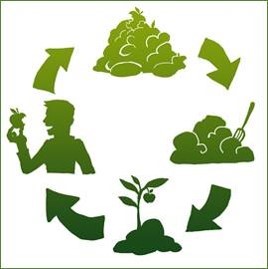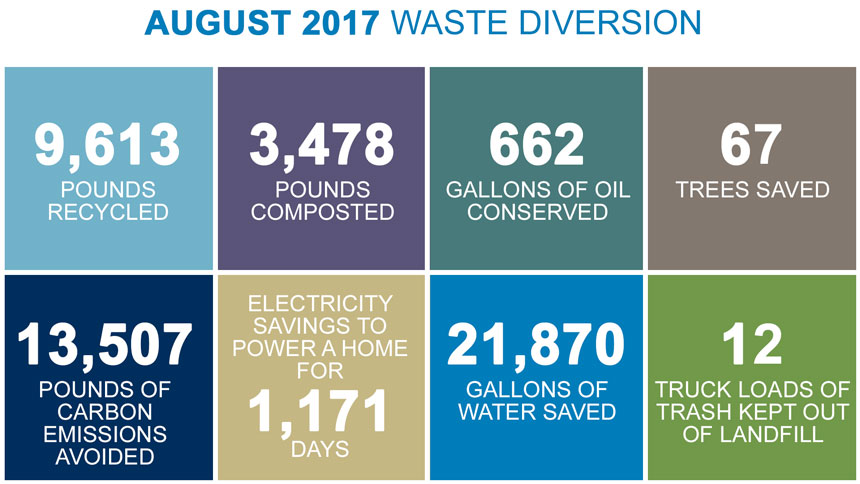
Eco-challenge: Save water with your trash
Picturing trash and water together may be unpleasant, even gross, but some trash, or "waste" as it is called in the industry, can be turned into water-efficient material.
How, you ask?
It starts with organic waste. More commonly known as food scraps, grass clippings and tree branches, organic waste makes up about 30 percent of the material that households send off to landfills every year.
A waste of perfectly good water-retaining material, if you ask us. By routing this waste to composting facilities, it becomes a healthy, nutrient-rich soil that can be used for planting and growing healthy, water-efficient landscapes.
At Denver Water, reducing the amount of waste produced by our operations not only helps waterways, but the entire environment, lessening our operational impacts. And that’s something we care about.
In 2015, a team of environmentally minded employees, known as the Green Team, participated in a process-improvement event to improve Denver Water’s waste diversion rate. Using audit data from 2014, they determined that one-third of our waste could be composted instead of riding off into the landfill sunset.
Beginning in 2016, the Green Team distributed compost bins throughout the Denver Water administration building. At year’s end, 19,653 pounds of material was sent for composting — the equivalent to two full-sized elephants!
Building off those positive results, Denver Water created a Sustainability Program in 2016 that examines every aspect of Denver Water operations and measures impacts on the environment.
“Recycling and composting are key to creating a clean and safe environment, which benefits wildlife and fish, as well as the people who recreate in our waterways,” said Andrea Doukakis, Sustainability Program assistant.
Denver Water is exploring environmentally friendly technology in treatment plants, throughout the operations complex and by using low-speed hydropower turbines to generate electricity. Each effort is focused on reducing, reusing or repurposing materials to responsibly operate the entire Denver Water system.
Want to start your own eco-challenge? Denver residents can add compost to their weekly trash pick-up. Check to see if your household is eligible, or start up your own backyard compost pile.


